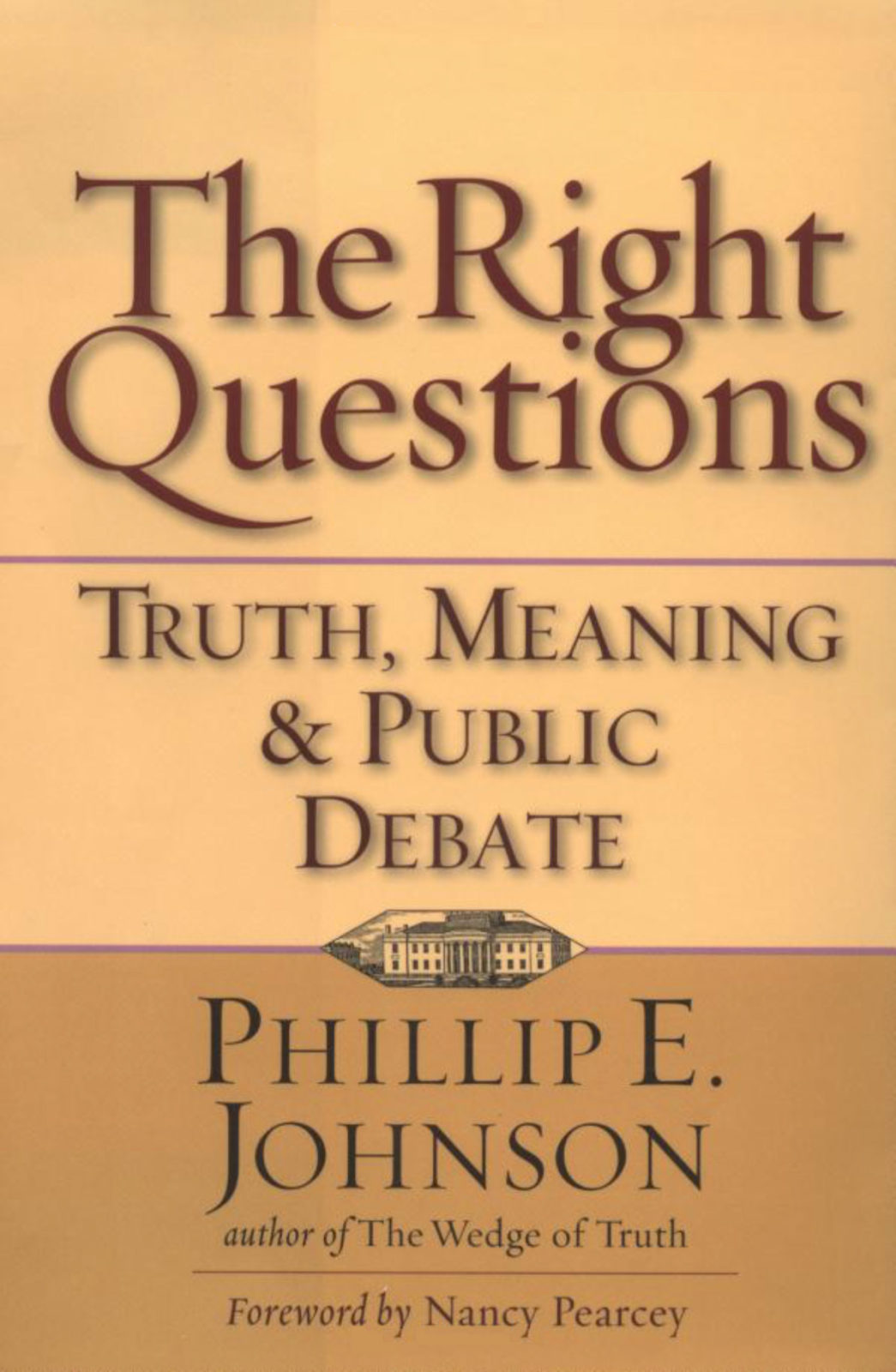The Right Questions
Truth, Meaning & Public Debate Learn more at Discovery.orgThe Right Questions is the product of an accomplished scholar who is reflecting upon culture and society in light of his other books which provided an extensive scientific critique of naturalistic theories of origins. In this book, Phillip Johnson, Program Advisor to Discovery Institute’s Center for Science and Culture, asks, “What are the right questions” in topics such as logic, the meaning of life, Genesis, and biological origins? It is only by asking the right questions that we will find the appropriate solutions to problems faced by society.

Johnson opens this book with a frank discussion of how his own personal trials and battles over health have renewed his faith. Johnson then reminds us that the key fundamental is not about the precise meaning of this or that passage of Scripture:
“The conflict is primarily not about Genesis, nor does it involve a clash between science and religion, or between science and faith. It would be much more accurate to say that it involves a clash between two religions and two definitions of science.”(pg. 60)
Johnson observes, “In every university there are scores of faculty and students who are suffocated by the prevailing dogmas of scientific materialism or political correctness but who almost never get a chance to hear anything else.” (pg. 51) Ruling creeds succeed when they keep their followers from exploring alternatives (pg. 73), which is why Darwinists refuse to permit discussion of the controversy over the science of Darwinism.
The right question that must be permitted for discussion in school is therefore, “Did the scientific evidence really support the philosophical conclusion (in a word, naturalism) that the Darwinists wished us to adopt, or could naturalism as a worldview survive only as long as dogmatic philosophical barriers protected it from the evidence that points to a designer?” (pg. 84) Once that question can be asked, Johnson is convinced that the chips will fall where the evidence leads.
